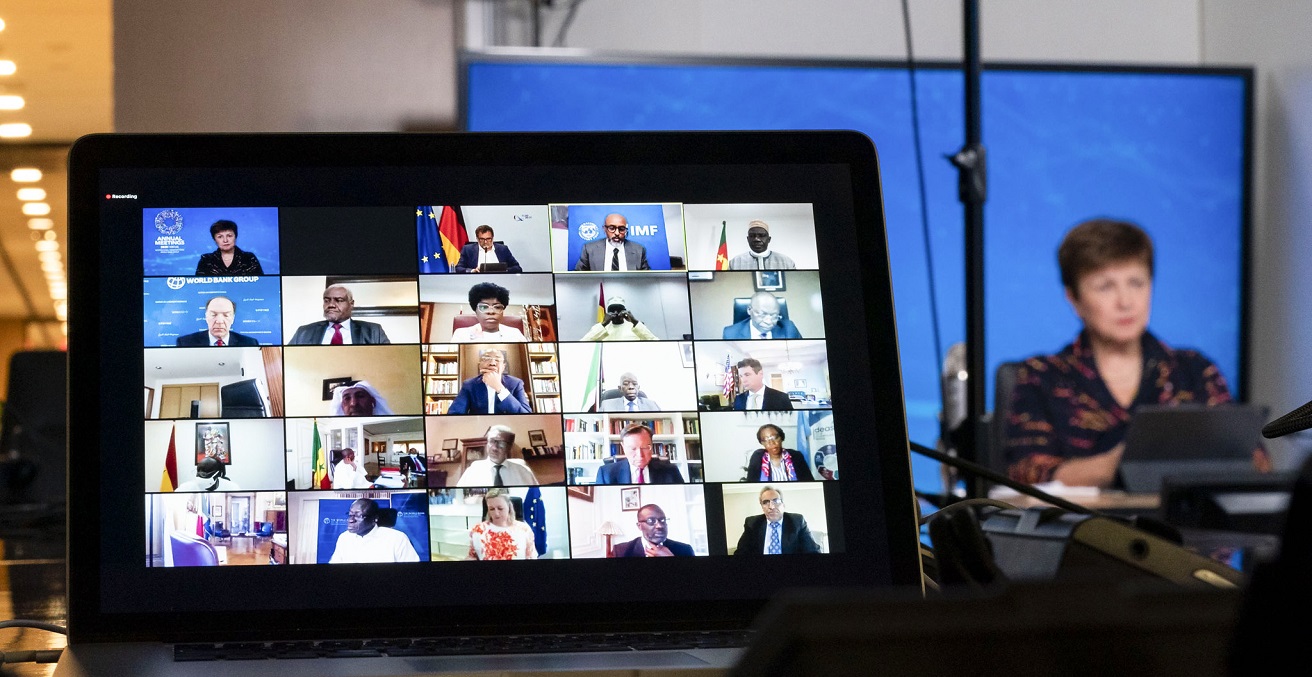Deglobalisation or an Evolution of Globalisation?

When seen through the prism of technology, globalisation seems to be evolving rather than ebbing. This raises the question of what policymakers can do to prepare themselves for this new phase of globalisation.
The current global economic trend, dubbed “deglobalisation,” is a source of international concern. Especially in trade matters, there is palpable fear that advanced economies could withdraw their manufacturing industries from emerging ones and shrink their supply chains to either within their borders or their surrounding region.
Debates over the current trend have been largely attributed to two key global developments: the rise of right-wing nationalist ideologies within countries and the push towards protectionism; and the ongoing COVID-19 pandemic that has exposed the fragility of global supply chains and manufacturing models.
However, an overlooked variable in debates over deglobalisation is developments in science, technology, engineering, and mathematics (STEM). STEM is a critical component of the global economy, and its advancement seems to play an understated but important role in driving deglobalisation.
(De)globalisation
Historically a key driver of globalisation, especially in trade, is cost. As firms seek to maximise profits by minimising production costs, an open international system permits them to do so by producing and seeking supplies where they are cheapest. Globalising production allows for substantial savings on labour as wages tend to be significantly lower in emerging economies than in advanced ones. Although additional costs are incurred for logistics and transportation, the overall gains justify taking on the supplementary costs of globalised production.
However, recent technological advancements are eroding such benefits. Developments in areas such as robotics, automation, 3D manufacturing, information technology, and artificial intelligence are steadily reducing the labour input required for manufacturing, and even eliminating it completely in some stages. As decreasing labour input shrinks labour costs, the cost-benefit balance associated with offshoring eventually tips in favour of reshoring production back home, as seen in the current deglobalisation trend.
Reshoring production may offer additional benefits to firms and industries beyond the financial. For instance, it provides political and social mileage as firms and industries are perceived as “bringing back jobs” – a position championed under the nationalist and protectionist rhetoric. Reshoring also reduces risks of an overexposed production or supply chain – a lesson being learned in the current pandemic. However, such nonfinancial benefits on their own may be insufficient in affecting production reshoring, regardless of how aggressively they are touted for under the current neoliberal economy that prioritises profit maximisation.
(Re)globalisation
Another feature of globalisation is open borders that allow the flow of people to and from different countries, which has helped nations benefit from a global talent pool and led to the flourishing of industries, innovation, and ideas throughout the world. However, nationalist ideologies and the pandemic have inhibited the openness of borders. Right-wing rhetoric argues against immigration, especially of those from other cultures and ethnicities, while the risk of undermining anti-pandemic efforts has effectively shut geographical borders, at least temporarily.
But while physical borders have come under threat, technology has erased virtual borders. High internet penetration has allowed people from around the world to access and benefit from globalisation without crossing borders. This is especially evident in the ongoing pandemic, as students have studied and even graduated without setting foot on their campuses. Remote working has become so normalised in the professional world that it is set to become a permanent feature in some industries.
Digital access to the global talent pool eliminates the physical hurdles laid by nationalism and the pandemic. Admittedly, not all industries can function in the same way, but as more of the economy becomes knowledge-based and industries digitalise and go online, an increasing proportion of the work force would be able to function completely remotely through the internet, unencumbered by physical location.
Responding to the (New) Globalisation
The reports of globalisation’s death seem to be greatly exaggerated because, when viewed through the prism of technology, the current trend seems less like “deglobalisation” and more like a transformation or an evolution. However, this does not mean global leaders and governments can resort to being spectators as globalisation evolves. On the contrary, they need to urgently address policies to ensure they maximise their benefits from this emerging phase.
Experts fear “deglobalisation” as it may increase inequalities between countries that globalisation has reduced, especially when manufacturing industries undergo reshoring. Such an inequality spike may occur due to the dominance of economies with advanced technology. As firms in such advanced economies would have no financial incentive to physically venture into emerging economies to share their technical know-how, it may lead to an unintended “hoarding” of capabilities in advanced economies, which would hamper emerging ones from growing.
A prudent way to overcome this is for global leaders and governments to facilitate technology and expertise sharing between firms and countries by strengthening international and domestic laws relating to intellectual property (IP) rights, especially in developing countries where such legal systems tend to be weaker. Given the non-excludable character of knowledge, weak IP rights stifle innovation and discourage technology sharing and transfer as there is limited financial incentive in doing so when the competition may easily replicate and profit from novel ideas without investing resources into development. Therefore, by strengthening the IP legal system both in emerging economies and internationally, firms would be incentivised to explore and invest in opportunities in such countries and, in the process, increase their growth while boosting their own profitability.
While advanced economies tend to enjoy stronger IP laws, they do not automatically lead technology advancements. Such innovation and capability developments are spawned by the high-quality STEM graduates who, studies show, are also needed in large numbers even when industries reshore. Unfortunately, there has been an overall decline in STEM graduates in developed countries to which industries are set to return and whose labour needs they may be unable to fulfill. This problem is compounded by a shrinking demographic that further strangles the capacity of developed nations to meet the demands of their industries, especially when immigration is politically unpopular. Hence, policymakers should focus on incentivising more of their populace to enter and gain expertise in the STEM fields. Their policies should not be focussed only on their encouraging young people to choose STEM subjects for their tertiary education, but also on re-skilling their mature workforce to gain necessary STEM proficiency as low-skilled jobs are increasingly lost to automation and cognate tech developments.
However, as discussed earlier, industries can meet their talent needs globally and remotely thanks to an internet-connected world that transcends physical borders. While such practices naturally advantage businesses, they can have serious labour implications within countries, especially in advanced economies due to stark wage discrepancies with emerging economies. Hypothetically, if a position’s responsibilities can be fulfilled remotely, a firm would naturally choose to hire an equally capable person from an emerging economy over an advanced one due to the former’s lower wages. This can lead to severe unemployment issues even within advanced economies as their workforce’s wage demands could be uncompetitive in comparison to the global talent pool. Such issues may also undermine policy efforts to encourage STEM graduates since job prospects in the industry would seem bleak. Over time, this could lead to a decline in the country’s STEM capabilities.
Policymakers, therefore, need to update their labour laws and regulations to ensure that employment for their population is not lost to the globalised, internet-enabled workforce. While policies such as expat quotas or proving necessity to hire a non-local exist, they tend to be predicated on the physical presence of the hire within the country’s jurisdiction. In an internet-connected, remote-working, globalised world, such laws and policies may easily be circumvented, necessitating policymakers to update them to be relevant to the new demands and challenges.
Globalisation or deglobalisation is naturally a complex topic consisting of a multitude of trends and factors. However, when viewed from the perspective of technological advancement, the current trend seems not to be a retreat from globalisation but an evolution into a different form. This new form necessitates global policies and institutions to evolve accordingly and urgently so all countries, irrespective of their economic status, can benefit.
Gunalan Palanivelu has a background in natural sciences and public policy. His interests include the nexus between technology and society, and how they drive the evolution of each other.
This article is published under a Creative Commons Licence and may be republished with attribution.





